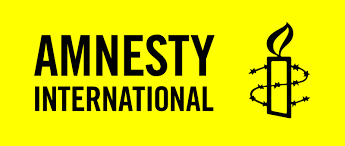Media Control in China:
Online Blackout in a Digital Age
AUTHOR: Tess Nealon

The internet is a valuable tool. Knowledge is power. We learn so much with the help of online platforms. Without Instagram, the likelihood of the world having a front seat to the atrocities and intricacies of the political climate in Iran is low. Without Twitter, we would have learned as much front-line information from the war that broke out in February 2022. However, both platforms are blocked in the People’s Republic of China, along with Snapchat, Facebook, and WhatsApp; however, currently accessible through a VPN. The Chinese government heavily censors not only these social media platforms but also news websites and search engines, in what has been branded the ‘’Great Firewall of China.’’
This is not necessarily about which platforms are blocked, but merely about why. The question is not just about what information the Chinese government is trying to contain, but also, what they do not want their 1.4 billion citizens to see. It is justified within the state as trying to maintain social order.
As well as banning outside media sources, platforms that originated within China such as WeChat and Weibo are dealing with internal censorship. Words such as ‘Wuhan,’ ‘Xi Jinping,’ and ‘crisis,’ were censored during the pandemic. Citizens of China were forced to use simple and more complicated code names and words for specific terms to discuss internal corruption and share important information. For example, VPNs are regularly coded as ‘Vietnamese Pho Noodles,’ or ‘ladders,’ and June 4th, the infamous date of the 1989 Tiananmen Square massacre is referred to as ‘65 April’, and ‘eight squared.’
The Chinese government constantly changes the list of banned and censored words and of course, never outwardly states the list in order to successfully stay on top of the creativity of Chinese web users. The new dictionary of appropriate and imaginative terms and phrases is ever-expanding and reducing daily.
Disallowing access both to information, and the ability to spread information is a major human rights violation. Without a doubt, it can be said that the Chinese government carefully and aggressively designed the measures taken to censor nearly a fifth of the world’s global population and ensure they have no voice. However, this did not mean that major companies such as Microsoft, Yahoo! and Google did not enable the undermining of Chinese civil rights, and all companies have been criticized for facilitating the repression of free speech and information access in China.

Microsoft operates Bing in China in a way that censorship can be upheld so that searches around certain areas are undiscoverable and non-existent in the country. On top of this, Google had loose plans to operate a search engine solely fitted to the Chinese market, that conformed with government rules, however, the plans were met with major criticisms from human rights activists and it never came into being.
As large companies turn a blind eye, and key and major information is continuously blocked in China, there is no doubt that censorship in a digital age violates many fundamental human rights. Knowledge is power, and that is something the government does not want its people to have.
